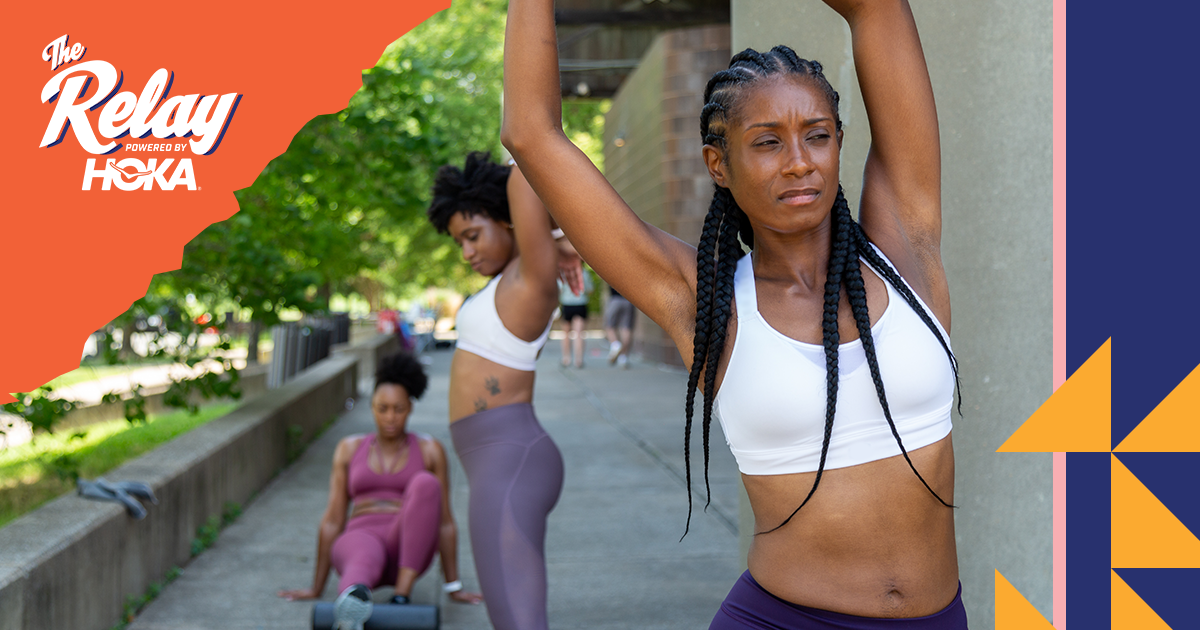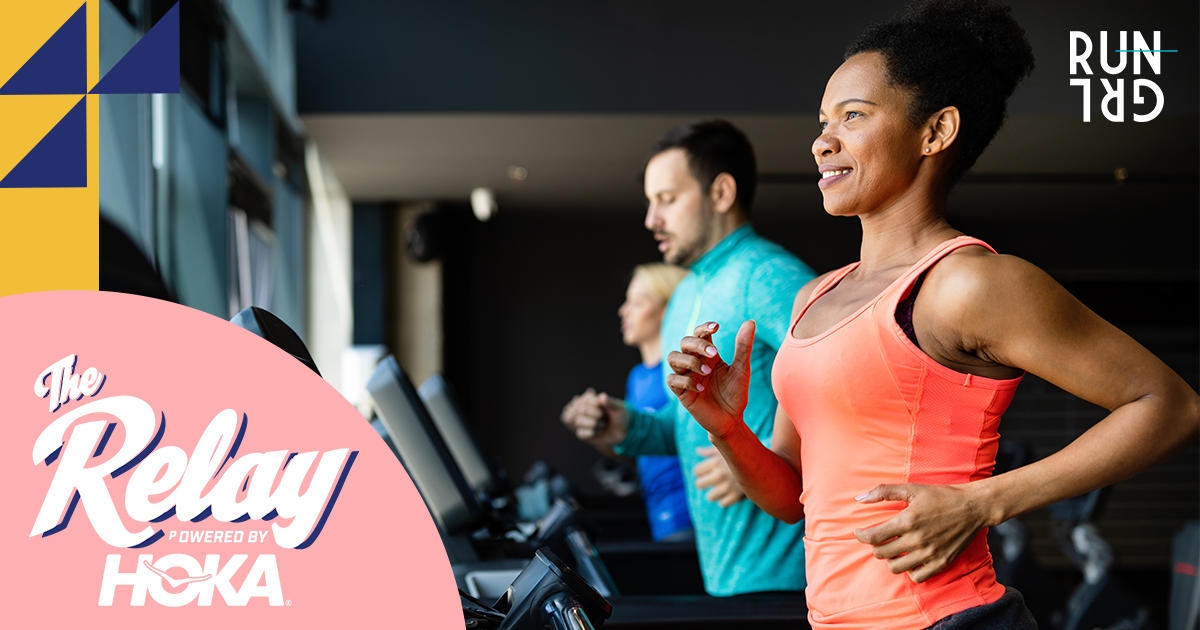The Relay: Overcoming Injuries to Become a Stronger Runner
Photo: Marc Bremer/RUNGRL Design
by Claire Green, Relay Squad Contributor
Let’s not sugarcoat it; injuries are a bummer. It’s the position no runner wants to be in, but one most of us will go through at some point. In running, setbacks are inevitable, but overcoming them can be a mental and physical battle. And, what’s worse, injuries always seem to occur at the most inopportune moments. So when we’re faced with an ill-timed injury (because when is it ever a good time to be injured?), is it possible to find a silver lining?
If handled properly, an injury can actually become the perfect opportunity to rebuild as a stronger athlete.
Get Your Injury Checked Out Right Away
The first thing to recognize is that injuries are the body’s way of letting us know that something is not right. As runners, we constantly push ourselves physically and test our limits. The most difficult aspect of training can be taking a step back and listening to what our body is trying to tell us. If something feels off, do not wait to see a doctor about the problem.
“The most difficult aspect of training can be taking a step back and listening to what our body is trying to tell us. ”
Review Your Training Routine
After an injury is diagnosed by a medical professional*, take some time to sit down and reflect on your training. Think about your nutrition, sleeping habits, the shoes you wear, anything that may have played a hand in developing an injury. If you keep a training journal, now is the perfect time to look back over it. More often than not, doing too much in a short amount of time will lead to an injury.
Don’t forget to take into account what a typical day looks like for you outside of working out. If your job requires you to be on your feet for an extended period of time, you may need to cut back on miles. Reflection is an important step to ensure you don’t fall victim to the same injury more than once. When you think you have identified the source of the issue, plan the ways in which you will change your training to avoid this in the future. Look at it as an opportunity to switch up your routine and gain some knowledge about your body.
Photo: Marc Bremer via Claire Green
Get Moving in New Ways
So you can’t run. What CAN you do? Talk with your doctor about safe ways to move while recovering. If running was your primary way to stay active, get the new, approved activities from your doctor and then get back after it (carefully). If you’ve been wanting to try a new form of exercise, now is the perfect time to do it. As the global pandemic continues, even more virtual workout options have been made available for free. So don’t let social distancing stop you from making moves.
Keep in mind that running is a repetitive motion that continuously works the same muscles. Taking time off from running is a great time to begin strengthening overlooked muscle groups, working on flexibility, and improving mobility. Strengthening your body in new ways will help your running when you’re healthy enough to resume.
Give it a Rest
If all else fails, take a break. We all need to hit pause sometimes. Giving your mind, as well as your body a chance to recover is crucial to becoming a better athlete.
As difficult as it can be physically to overcome an injury, it often is harder to overcome one mentally. It will take time to regain your stride after an injury-and that is okay. Set realistic expectations and take it day by day. This may mean pushing back your goal race, decreasing the number of runs in a week, or just taking things a little bit slower.
Don’t think of these changes as setbacks; think of them as adjustments. We are built to be resilient but it will take patience to allow the body to recover. When you are able to run again, learn to appreciate the exhaustion and soreness that comes with getting back into running. These are reminders that you are working hard and that is worth celebrating.
When you approach injuries correctly, the recovery process can provide an opportunity to develop into a stronger athlete. Be patient, listen to your body, and continue to find ways to challenge yourself. Allow your mind time to process but try to remember, you are built tough and your body will bounce back.
Looking for a run coach? Have questions about how to incorporate these runs into your training or additional running questions? RUNGRL’s latest offering of Black, female run coaches and elite athletes, The Relay, will help you through your first, farthest and fastest miles. Shoot us a message.
Medical Disclaimer - The above information is not intended as medical advice and does not replace the recommendation of a physician or other medical professional. Always seek the advice of your physician before trying these or any sort of workout or exercise program. View the full medical disclaimer in RUNGRL’s terms of use.
Claire is a former NCAA Division I Track and Field Athlete, Three-time NCAA All-American and Member of the HOKA One One Aggies Track Club.














